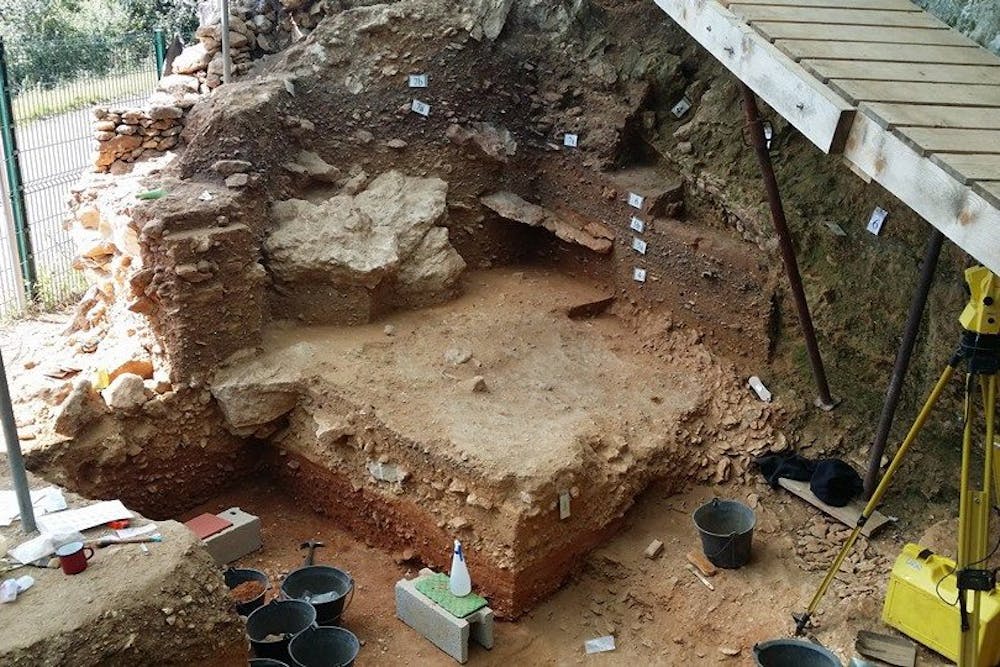Aylar Abdolahzadeh is looking for 200,000-year-old evidence of fire in Western Europe.
But there’s a problem — her visa will run out in less than a month. Because of her Iranian citizenship and the fact that she must leave the country to renew her visa, she’s decided it’s not worth the risk. She’s going to let it expire and rely on her I-20 form to allow her to stay in the country for the remainder of her degree.
She won’t be able to go to Europe this summer to do the necessary research for her project. Instead, she said, she may have to rethink her entire thesis.
***
Abdolahzadeh is a second-year Ph.D. student in anthropology. Although her program is five years long, she said she was granted just a two-year visa to come to the United States to study. She attributed this to her Iranian nationality.
United States student visas can only be renewed in foreign countries. Abdolahzadeh had planned to attend a conference in Canada and renew her visa while there, but while she was filling out the forms to attend, President Donald Trump issued the executive order that barred entry of Iranian citizens into the United States. This was before a U.S. District Court judge issued his temporary stay on the order, allowing those with valid visas to enter and leave the country.
Abdolahzadeh said she was concerned she would not be able to reenter the United States after the conference and opted to cancel her plans.
M.K., a second-year Iranian Ph.D. design student in the Department of City and Regional Planning, is in the same predicament as Abdolahzadeh. The two-year visa she received for her four-year program expires on July 12, and she has no plans to renew it. M.K. requested to be referred to by her initials due to potential backlash related to her Iranian nationality.
She’d hoped to go home over the summer and renew her visa because she hadn’t been back to Iran in a year. Now, she’s not sure if she will be able to return before she finishes her degree. She’s concerned because her elderly father is in poor health. He could pass away, she said, and she would not be able to come home.
“I have to basically sacrifice everything because of my Ph.D.,” she said.
***
Despite the temporary halt on the executive order, Abdolahzadeh and M.K. feel stuck. Though Trump has since lightened the initial ban to account for fewer people — and Iranians are not exempt — Abdolahzadeh and M.K. do not feel any reduced pressure. Although the new ban has not yet gone into effect, they still fear that the general sentiment surrounding Iranians could present challenges.
Abdoladazeh explained that there is a chance she will be denied a new visa on the sole basis of her country of citizenship. She added that renewing a visa could take a month, and she’d have to stay outside of the United States while waiting to receive it if she ends up lucky. Besides, she noted, pausing degree progress in the middle of the semester is a logistical challenge.
M.K. agreed, noting that she feels as though authorities often search for reasons to deny visas to people like her. She is also concerned that if she leaves the country, the court could release a final decision that would bar her reentry into the United States.
“It’s a hypothetical situation,” she said, “but nowadays, anything can happen.”
M.K. also emphasized the confusion surrounding the executive order and the temporary ban. She said that if she were to leave, there remains a chance she would get stuck at the border because, as the executive order remains in legal limbo, she has not found a clear current interpretation.
She’s not even sure if she would pass an extra screening at an airport on her way to the United States.
“I don’t feel comfortable giving them all of my personal information,” she said. “Maybe they’ll just find something which is innocent to me and they’ll be like, ‘no, that specific thing that you said that one time is very threatening and because of that, you cannot come in.’”
Even experts, she mentioned, don’t quite understand the situation.
“You just feel really scared,” M.K. said. “Even lawyers and the people who are supposed to know the law, they think there is no one answer — you just feel that you can’t make such important life decisions based on very unclear answers.”
M.K. takes comfort in the resources Penn Law’s Transnational Legal Clinic has provided for her. For instance, she has had conversations with them to weigh out the risks and benefits of leaving the country.
“UPenn has been supportive,” she said. “As much as it could have been.”
***
Abdolahzadeh fears for her studies — as an archaeologist, her work mandates that she travel to other countries to view different collections and historical sites. She started her project on European Paleolithic fire last year, and she’d planned to examine the necessary artifacts firsthand this summer.
She lauded her advisor’s support in helping her redirect her focus. She said she and her advisor are looking into the possibility of shipping materials from France to Philadelphia. Still, she added, it could take longer to send the artifacts and, since it is impossible to ship an entire collection, she would have to shrink the scope of the research.
Chair of the Anthropology Graduate Group Deborah Thomas said that although most students have to rethink their thesis topics at some point, Abdolahzadeh’s situation is unique.
“You don’t come into a program like this imagining that the political situation is going to change so drastically that you’re not going to leave the country,” she said. “I think it’s been startling for everyone.”









